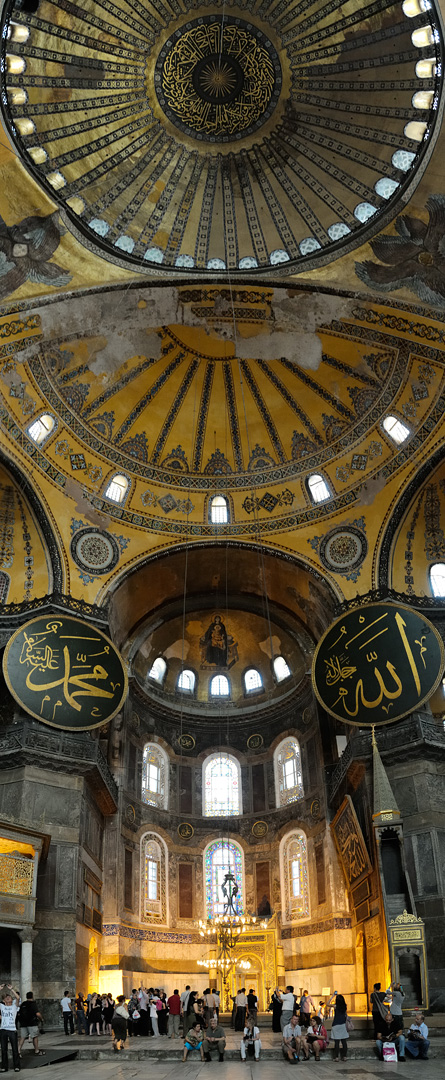fahim mohammed
Well-known member
Let me tell you a story of a house.
Long long time ago a son and his parents arrived in a valley.
A valley in the desert. Arid, deserted, hot. Rocky mountains on all sides.
They had been told to settle here. In this barren deserted valley.
As the story goes, later on, the father and son were told to build a house.
Where? They were told the place. Why? A similar house had once stood there.
Father and son obeyed. Day and night, months, years; the both of them toiled to build the house.
When the house was completed, the father was told to call the people to the house.
Call? Who? They were not aware of anyone that lived here and far away. In this desert.
Call the people to the house, the father was told.
But nobody is there to hear me, said the father. I am old, my voice is weak, there is
no one around. Who shall hear my call?, said the father.
You are commanded, Abraham ( PBUH) to call.. 'My job, continued the Voice, is to make the people hear My Call'.
Last Thursday, 25, Oct, 2012, 3 million people gathered in a deserted plain. They had started coming for this day by air, sea, land and some even on foot from months before. From every corner of the globe.
They were starting a journey to visit a house. Similar to the one the father and son had built those thousand of years ago. In the same place.
The travelers between them spoke hundreds of different languages. However, each one of them was heard to say ' We hear the Call, Our Lord. And we answer (obey)'. In one and the same language.
Visitors and those living now around this House, visit it throughout the year. The House is open 365 days, 24 hours per day. " We hear the Call, Our Lord. And we answer (obey).'
The photo is that of a key to the House and a Pouch to hold a key of the House of that time made hundreds of years ago.
It is only of historical significance. No more, no less.

Long long time ago a son and his parents arrived in a valley.
A valley in the desert. Arid, deserted, hot. Rocky mountains on all sides.
They had been told to settle here. In this barren deserted valley.
As the story goes, later on, the father and son were told to build a house.
Where? They were told the place. Why? A similar house had once stood there.
Father and son obeyed. Day and night, months, years; the both of them toiled to build the house.
When the house was completed, the father was told to call the people to the house.
Call? Who? They were not aware of anyone that lived here and far away. In this desert.
Call the people to the house, the father was told.
But nobody is there to hear me, said the father. I am old, my voice is weak, there is
no one around. Who shall hear my call?, said the father.
You are commanded, Abraham ( PBUH) to call.. 'My job, continued the Voice, is to make the people hear My Call'.
Last Thursday, 25, Oct, 2012, 3 million people gathered in a deserted plain. They had started coming for this day by air, sea, land and some even on foot from months before. From every corner of the globe.
They were starting a journey to visit a house. Similar to the one the father and son had built those thousand of years ago. In the same place.
The travelers between them spoke hundreds of different languages. However, each one of them was heard to say ' We hear the Call, Our Lord. And we answer (obey)'. In one and the same language.
Visitors and those living now around this House, visit it throughout the year. The House is open 365 days, 24 hours per day. " We hear the Call, Our Lord. And we answer (obey).'
The photo is that of a key to the House and a Pouch to hold a key of the House of that time made hundreds of years ago.
It is only of historical significance. No more, no less.

Last edited by a moderator:




